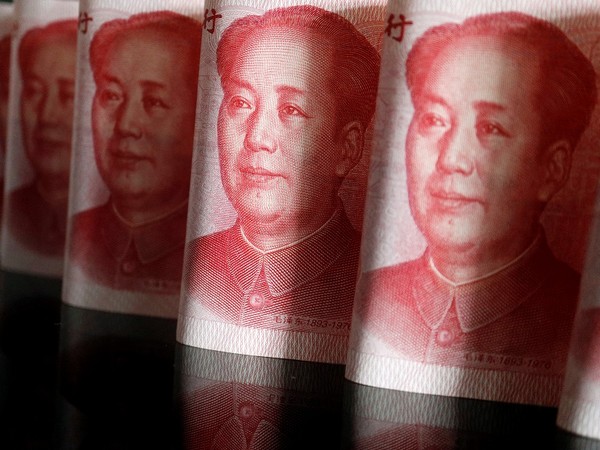COVID lockdowns lead to second sharpest decline in China's economy
China's COVID-19 lockdowns has hit its economy as Beijing's gigantic services sector just contracted at the second sharpest pace on record.

China's COVID-19 lockdowns have hit its economy as Beijing's gigantic services sector just contracted at the second sharpest pace on record. Businesses in the world's second-largest economy were already grappling with rising energy and raw material costs, when COVID lockdowns hamstrung their operations further, reported CNN.
The Caixin purchasing managers' index, a closely-watched indicator for assessing the state of the economy, plummeted to 36.2 in April from 42 in March, according to a survey released by IHS Markit on Thursday. A reading below 50 indicates contraction, while anything above that gauge shows expansion. The nearly 6-point decline in services activity in April was second only to the collapse in February 2020, when China's economy came to a near standstill as it battled to contain the initial coronavirus outbreak that started from Wuhan. In that month, the Caixin services PMI dived to 26.5 from 51.8 in January.
The services sector accounts for more than half of the nation's GDP and over 40 per cent of its employment. And with survey data showing China's manufacturing sector also shrinking last month, the world's second-biggest economy went backwards in April. As the highly transmissible Omicron variant spreads quickly in China, the country is battling its worst outbreak in more than two years. So far, at least 27 Chinese cities are under full or partial lockdown, which could be impacting up to 185 million residents across the country, according to CNN's latest calculation.
That includes Shanghai -- the nation's leading financial centre and a major manufacturing and shipping hub. The city has been under lockdown since March 28. The Chinese government still adheres to its stringent zero-Covid policy more than two years after the initial outbreak -- at a time when the rest of the world is learning to live with Covid. The policy involves mandatory mass testing and strict lockdowns to contain the spread of the virus.
But economic costs are rising. The nation's capital has effectively shut down its largest district, Chaoyang, suspending transportation within it and encouraging 3.5 million residents to work from home as part of its latest effort to curb COVID-19 cases, local authorities announced Wednesday, reported CNN.
It has also become harder for firms to pass the higher prices to consumers, because of the impact COVID restrictions have having on customer demand. That has translated to even lower employment, reported CNN. The data came just hours after China reported a steep drop in tourist spending for the Labor Day national holiday.
Tourist spending was only 64.7 billion yuan (USD 9.8 billion) over the five-day holiday, down 43 per cent from the same period last year, according to a statement by the Ministry of Culture and Tourism late Wednesday, reported CNN. The data again highlights how China's zero-Covid policy has taken a heavy toll on its economy.
On Saturday, PMI surveys from the government indicated that both factory and non-manufacturing activities slumped in April to their worst levels since February 2020, reported CNN. Many economists have downgraded their China GDP growth targets for this year, citing risks from the zero-Covid policy. Last month, the International Monetary Fund lowered its China growth forecast to 4.4 per cent, well below the government's official target of about 5.5 per cent. (ANI)
(This story has not been edited by Devdiscourse staff and is auto-generated from a syndicated feed.)










